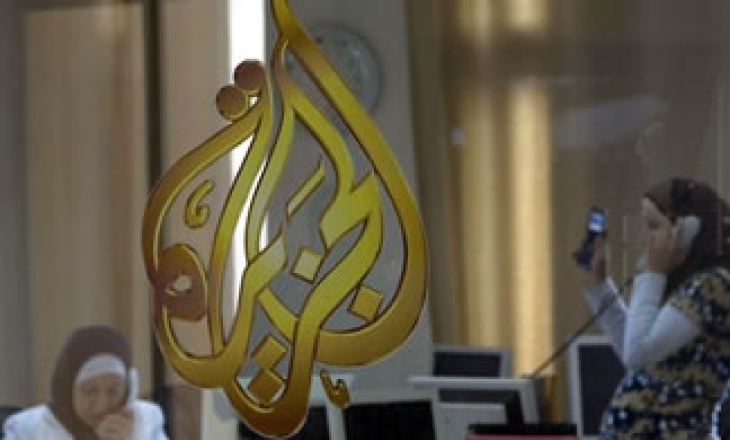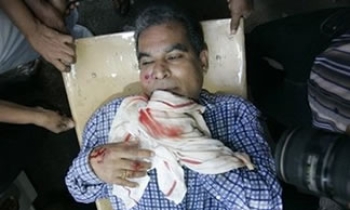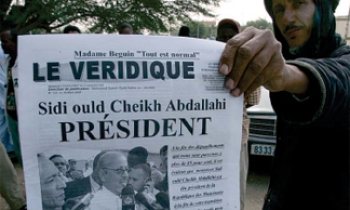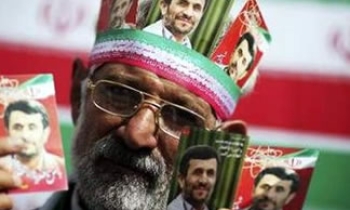The Palestinian Authority has suspended the operations of Al-Jazeera in the West Bank after the satellite channel aired a controversial interview on Tuesday. The suspension, according to a Palestinian Authority Ministry of Information statement, came on Wednesday and will remain in place until "the judiciary issues a ruling on the subject."
The Ministry of Information's actions came a day after Al-Jazeera broadcast its talk show "Behind the News" from Doha, Qatar, to discuss accusations made earlier in the day by Faruq al-Qadumi, a Fatah party leader, against Palestinian President Mahmoud Abbas.
Al-Qadumi had told journalists in Amman, Jordan, on Tuesday that Abbas and the former head of the Palestinian Preventive Security Service, Muhammad Dahlan, were involved with Ariel Sharon in a plot to assassinate former President Yasser Arafat and other Palestinian leaders in 2004, according to regional news reports. Many Arab media outlets, including Al-Jazeera, reported on the accusations.
The Ministry of Information said that it plans to file a lawsuit against Al-Jazeera because of its "incitement and unbalanced reporting from the Palestinian territories."
"We are alarmed by this decision of the Palestinian Authority to punish Al-Jazeera for allowing critical discussion of Fatah party affairs," said Robert Mahoney, Committee to Protect Journalists (CPJ) deputy director. "These are matters of legitimate interest to the Palestinian public. We call on the Ministry of Information to immediately allow Al-Jazeera to resume all its operations in the West Bank."
"This decision is a serious violation of press freedom," said Aidan White, International Federation of Journalists (IFJ) General Secretary. " It shows intolerance on the part of the Palestinian Authority and suggests that it is trying to control media by suppressing reporting which it does not like. The ban should be lifted immediately."
Palestinian Prime Minister, Salam Fayyad, who is also in charge of the Ministry of Information, has according to reports signed the order to close the office until the court decides on the case against Al Jazeera filed by the Ministry.
IFJ says the use of the courts in a case like this will intimidate all media and the Authority should find other ways of challenging the comments that have been made. "If the authorities want to counter these statements they should do so in a professional and transparent manner," said White. "Then journalists can report their position and provide the balance they say is needed." IFJ says public figures and political leaders must show tolerance of adverse reporting and respond to it in the context of continuing support for independent media and democratic pluralism.
Walid al-Omary, Al-Jazeera's bureau chief in the West Bank, said that a spokesman for the Palestinian Authority was invited to participate in the show, but that he was unavailable at the time. An Al-Jazeera presenter read a statement by the Palestinian Authority condemning and rejecting al-Qadumi's accusations at the beginning of the show, he told CPJ.
Both Al-Jazeera Arabic and English service are affected by the suspension, according to the Associated Press. Al-Jazeera has about 30 correspondents, cameramen, fixers, and technicians operating in the West Bank.
Since June 2007 Fatah has consolidated its control over the West Bank, after Hamas took control of Gaza and ended a short-lived coalition government. Journalists and publications have been often targetted by the two factions. Both Fatah and Hamas have frequently detained journalists and banned publications that have not espoused the official line.










